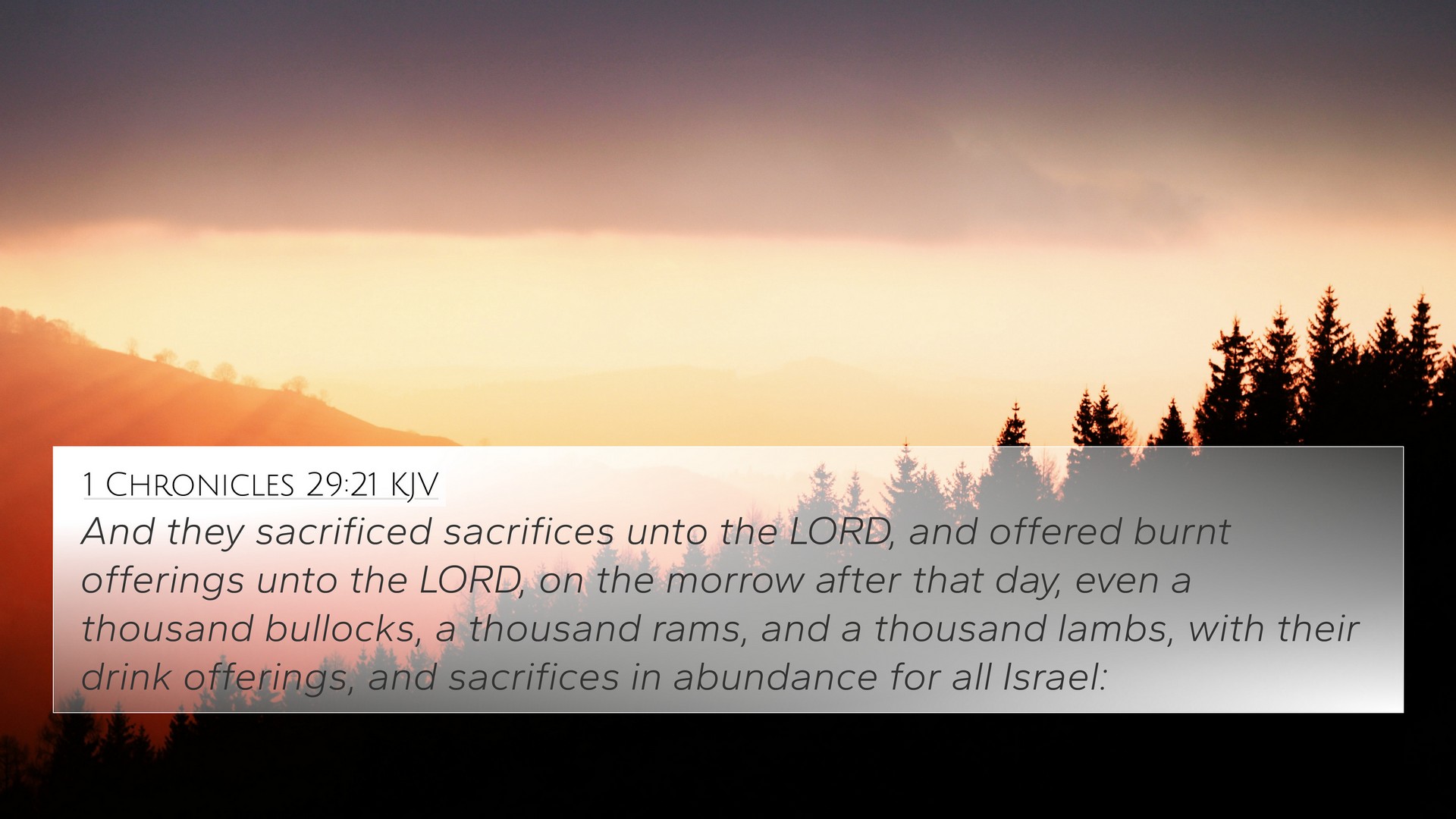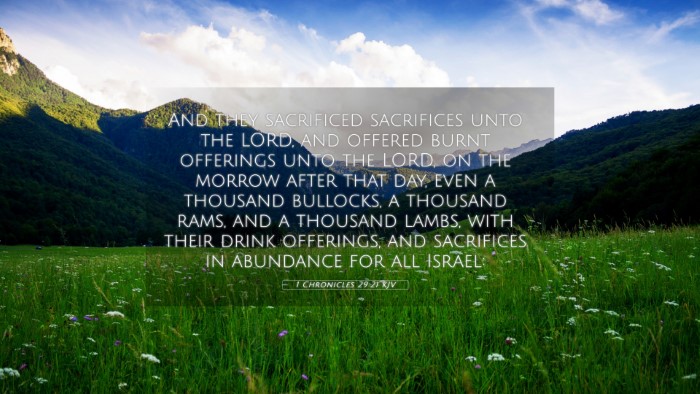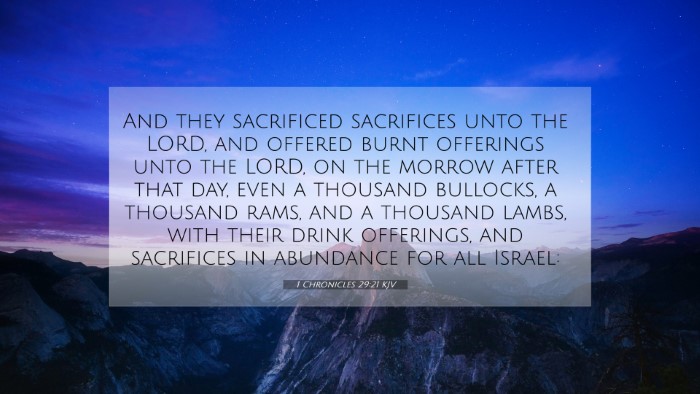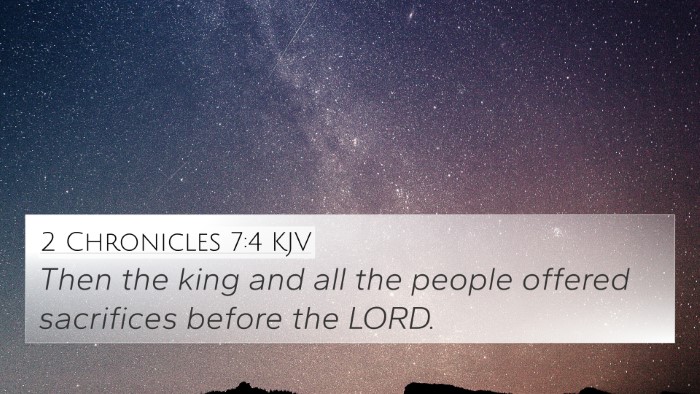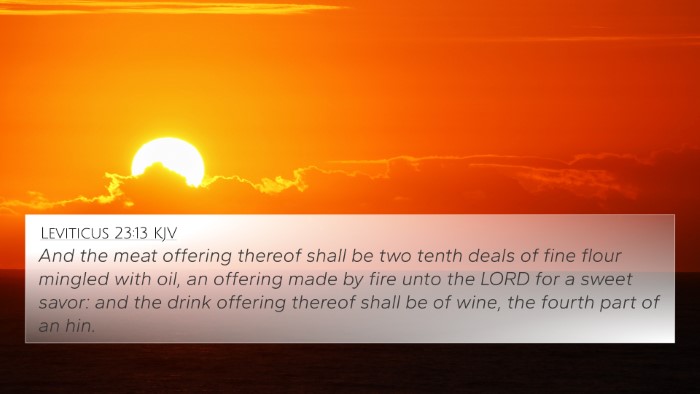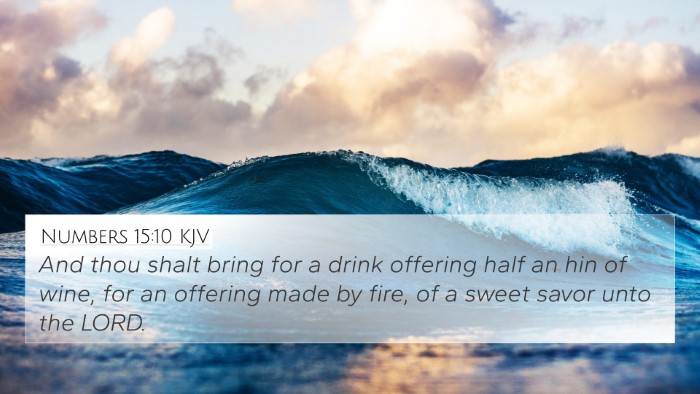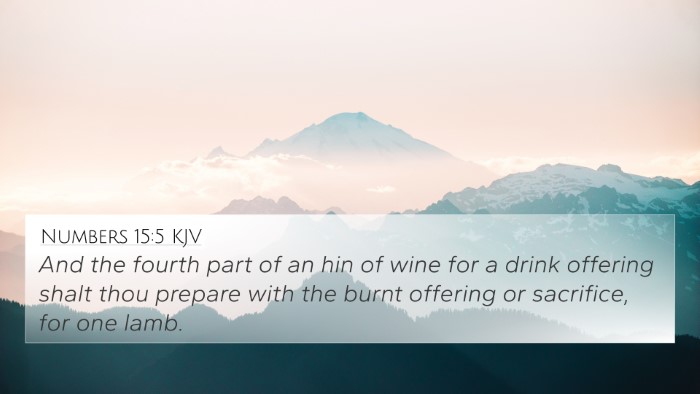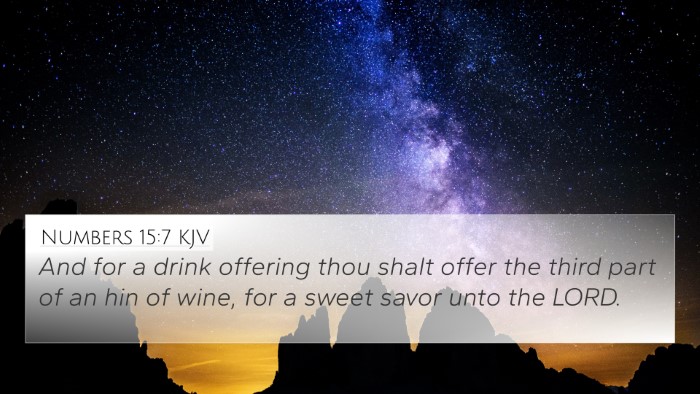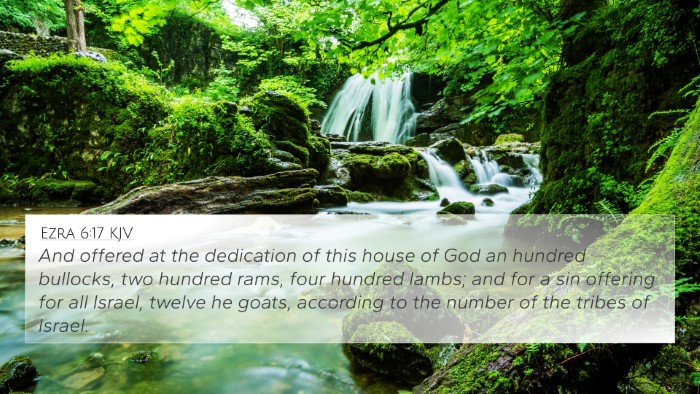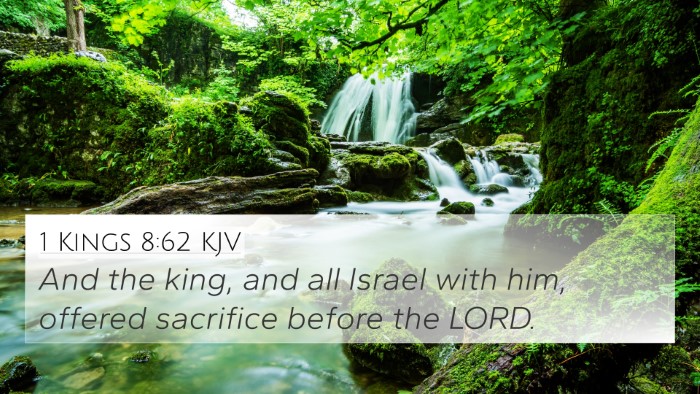Understanding 1 Chronicles 29:21
Verse: “And they sacrificed sacrifices unto the LORD, and offered burnt offerings unto the LORD, on the morrow after that day, even a thousand bullocks, a thousand rams, and a thousand lambs, with their drink offerings, and sacrifices in abundance for all Israel.”
In this verse, we see a profound moment in the history of Israel where the people collectively worship the Lord through significant sacrifices. This act of devotion reveals their dedication and communal unity under King David, reflecting deeper themes of sacrifice, worship, and covenant relationship with God.
Key Themes
- Devotion: The multitude of sacrifices signifies the people's commitment to honor God.
- Community Worship: The act of sacrificing together illustrates the unity among the Israelites.
- Covenant Relationship: Sacrifices were integral to maintaining their covenant with God.
- Leadership of David: The spiritual leading of King David in worship is noteworthy.
Commentary Insights
Matthew Henry: Henry emphasizes that the gathering and worship signify Israel's acknowledgment of God’s sovereignty. The number of sacrifices reflects their great joy and gratitude for the blessings received from the Lord. It was a significant expression of their thankfulness.
Albert Barnes: Barnes notes that the offerings made were not merely ritualistic but an intentional act meant to glorify God. He stresses the importance of such acts in the life of a believer and how they reflect one's heart towards worship and service.
Adam Clarke: Clarke connects these sacrifices with the overarching theme of dedication in the Old Testament. He highlights that these offerings serve as a foreshadowing of Christ’s ultimate sacrifice, bridging the Old Testament with New Testament teachings about redemption and atonement.
Bible Cross References
- Exodus 29:38-42: Details the sacrificial system instituted by God for Israel.
- Leviticus 1:3-9: Specifics about burnt offerings and their significance.
- 2 Samuel 24:25: Another instance of David offering sacrifices to God.
- Psalms 107:22: Encouragement to offer sacrifices of thanksgiving.
- 1 Kings 8:63: Solomon’s sacrifices at the temple dedication parallels David’s leadership.
- Romans 12:1: The New Testament call to present ourselves as living sacrifices.
- Hebrews 9:26: Points to Christ’s singular, perfect sacrifice as the fulfillment of Old Testament sacrifices.
Thematic Connections
This verse connects to broader themes in Scripture, emphasizing the importance of sacrifice and worship. It serves as a vital point of cross-referencing Biblical texts, linking to both the Old and New Testament teachings:
- Worship through Sacrifice: Found in various forms throughout Scripture, showing the progression from animal sacrifices to spiritual offerings.
- Collective Worship: The communal aspect is present in many passages, indicating the value of coming together as a body of believers.
- Covenant Relationship with God: References like Jeremiah 31:31 highlight the continuity from the old covenant to the new.
Applying the Insights
When studying this verse, it is beneficial to utilize tools for Bible cross-referencing. To understand the significance of 1 Chronicles 29:21 fully, consider:
- Using a Bible concordance to find mentions of “sacrifice” throughout the Old and New Testaments.
- Engaging in a cross-reference Bible study that explores the linkages between sacrificial acts and their spiritual implications.
- Exploring the comparative study of Pauline epistles which reflect on the themes of sacrifice and worship in the Christian faith.
Conclusion
The verse from 1 Chronicles 29:21 serves as a profound reminder of the significance of worship and sacrifice in our relationship with God. By employing a comprehensive approach to Bible verse cross-referencing, we can deepen our understanding of the connections between various scriptures and the overarching narrative of redemption through Christ.
